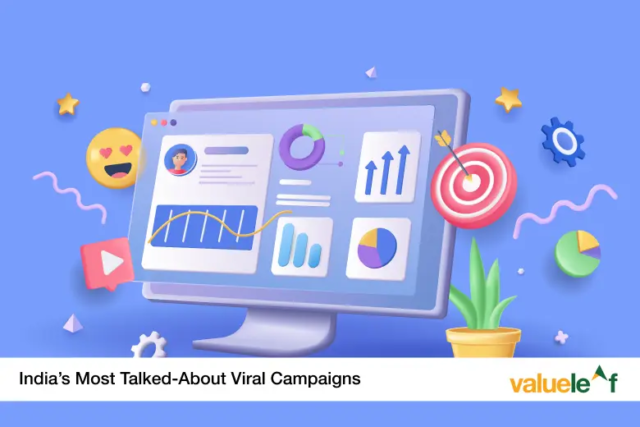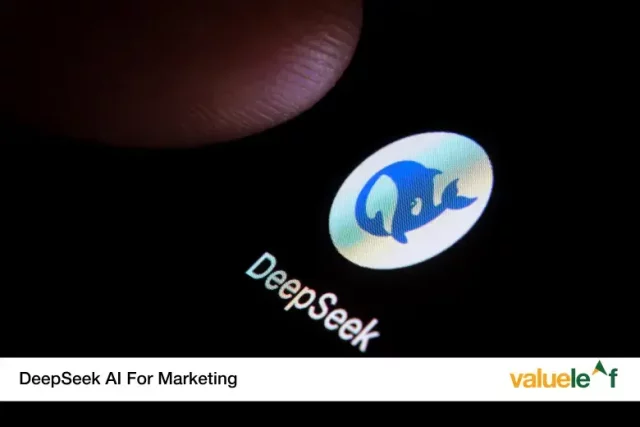Digital marketing is essential for businesses wanting to grow in today’s competitive market. However, some common practices, even if done with good intentions, might be slowing down your business instead of helping it succeed. In this blog, we’ll explore digital marketing habits that could be hindering your business growth. We’ll also share examples of successful campaigns and offer simple tips for improving your online marketing efforts.
| Revenue from mobile internet advertising/ digital marketing in India is expected to increase from INR 7,331 crore in 2020 to INR 22,350 crore in 2025. This is a radical growth with a CAGR of 25.4% in India. Explore the Digital marketing industry with the latest insights. |
5 Main Habits that are Holding your Business Growth
Here are some of the digital marketing habits that could be holding you back :
- No Proper Online Marketing Strategies: Around 45% of companies engage in digital marketing without a clear plan, which is a mistake as it leaves them without direction. Besides Ignoring Data Insights from the Analytics, is one of the core reasons for not getting the desired results. Digital marketing without analytics is like driving blindfolded. Many businesses still make decisions based on intuition rather than data, leading to inefficient campaigns and wasted budgets. They cannot focus on meaningful objectives or measure their success without an online marketing strategy
- Overlooking At SEO Best Practices: You need to pay attention to the best search engine optimization (SEO) practices to ensure your online visibility. SEO is modifying your website and content to rank higher on search engine results pages (SERPs). As low-quality content fails to engage the audience and can even harm your brand reputation.
Failing to focus on SEO can make it challenging for potential customers to discover your business online. Improving SEO involves ensuring your website is mobile-friendly, strategically using relevant keywords, and consistently adding new, engaging content. SEO remains one of the most effective long-term strategies for driving organic traffic. However, some businesses either overlook it or fail to invest in it properly, resulting in low search engine rankings and reduced visibility - Not Adapting to Changing Trends: Digital marketing trends evolve rapidly, and failing to keep up can leave your business behind. Whether it’s new algorithms, emerging platforms, or shifting consumer behaviors, staying static in your strategies can be a major drawback. Retargeting is a critical strategy in converting potential customers who have previously interacted with your brand but didn’t make a purchase. Many businesses either don’t use retargeting or implement it incorrectly, losing out on a significant conversion potential.
- Underestimating the Power of Social Proof: Social proof, such as customer reviews, testimonials, and case studies, is a powerful tool in digital marketing. However, many businesses neglect to leverage it effectively, missing out on an opportunity to build trust and credibility with their audience.
While paid advertising can drive quick results, relying solely on it is a risky strategy. It can be costly, and once the budget runs out, so does the traffic. A balanced approach that includes organic marketing is essential for long-term success. - Overcomplicating Your Marketing Message: Simplicity is key in digital marketing. If your message is too complex or jargon-heavy, it can confuse and alienate your audience. Clear and concise communication is more likely to resonate with potential customers.
Tips To Avoid Factors Slowing Down Business Growth
- Developing Goals And Objectives: You can start by developing your goals and objectives using the SMART (Specific, Measurable, Attainable, Realistic, Time-bound) framework. For instance, you might set a goal to increase your website traffic by 10% within the next three months. Once you have set your objectives, you can then work on creating strategies to achieve them, involving key performance indicators (KPIs) worth tracking, which channels you should use, and what content is best for your objectives.
- Customer’s Privacy: Your digital marketing strategy should point towards personalized experiences that respect a customer’s privacy, leveraging zero-party and first-party data. Use ethically sourced data to create high-quality, tailored digital marketing ideas, including stunning visuals, unique and informative content, and targeted customer segmentation.
- Create Custom Website: Start creating a custom website using platforms like WordPress and Squarespace. If you’re an eCommerce brand, you can use Shopify or WooCommerce. If unsure, look into the platform’s features and decide which works best for you. The three most important digital marketing best practices for web design and development are ease of navigation, responsiveness, and security.
- Online Reputation Management: Leverage online reputation management tools, such as review monitoring, review response, and even reputation repair tools. Monitor feedback to collect digital marketing ideas. Use great customer reviews as social proof on your website, blog, social media, email, and advertising campaigns.
- Business Profile: Create business profiles on major social media platforms like Facebook, Instagram, and LinkedIn, post organic content like marketing advice, how-tos, and press releases to generate leads and engagement. Run paid ads with targeting options for audience, location, and device.
- SEO optimization: Search engine optimization (SEO) combines content optimization and web design strategies. The best way to optimize your website is to audit your website and your existing digital assets thoroughly. Once you’ve identified any issues, you can then prioritize and implement corrective measures.
- Data-Driven Strategies: This list of the most common digital marketing mistakes to avoid can be remedied with data. You can implement data-driven strategies across your campaigns by using tools and techniques such as A/B split testing, market research, heat maps, and analytics dashboards. These tools help you gain a better understanding of the customer journey, your audience, and ultimately, how to improve your marketing tactics.
The Major Role Of ROI
Maximizing ROI in digital marketing requires a collaborative team. Data analysts provide insights, strategists plan campaigns, and managers execute them. Content creators, SEO specialists, and PPC (Pay-Per-Click) experts drive traffic and engagement. Social media and email marketers nurture leads, while web developers ensure optimal website performance. Together, these roles contribute to measuring, optimizing, and increasing the return on investment for digital marketing efforts.
How do they connect?
- Identifying Ineffective Habits: By understanding ROI, you can identify which digital marketing tactics yield positive returns and which do not.
- Measuring the Impact of Changes: When you implement changes to your digital marketing strategy based on the blog’s recommendations from SEO practices, growing organic traffic is easier. Essentially, there needs to be more experimental content that not only promotes services but also connects with your audience.
- Optimizing Resource Allocation: By calculating ROI for different marketing channels or campaigns, you can allocate your budget more efficiently to activities that generate the highest returns.
Demonstrating Value: A strong ROI can justify your digital marketing efforts to stakeholders and secure additional resources for future campaigns.
Conclusion
By recognizing and addressing these common digital marketing habits, you can transform your marketing efforts into powerful tools for business growth. The key is to stay adaptable, data-driven, and customer-focused. Remember, digital marketing is not just about keeping up with the latest trends; it’s about understanding and meeting the needs of your audience in a way that is both effective and sustainable.
FAQs on Digital Marketing Habits
Q. How is digital marketing affecting business?
A. Digital marketing is transforming businesses by increasing online visibility, driving targeted traffic, enhancing customer engagement, and providing measurable results that boost overall growth.
Q. How can digital marketing change your business?
A. Digital marketing can change your business by reaching a wider audience, improving brand recognition, driving sales through targeted campaigns, and fostering stronger customer relationships.
Q. What are common digital marketing habits that hinder business growth?
A. Common digital marketing habits that hinder growth include inconsistent content posting, neglecting SEO, relying on outdated strategies, ignoring analytics, and poor customer engagement.
Q. How do outdated digital marketing strategies impact business performance?
A. Outdated digital marketing strategies can lead to reduced audience engagement, lower conversion rates, missed opportunities, and decreased competitiveness in the market.
Q. Why is it crucial to regularly update digital marketing tactics?
A . Regularly updating digital marketing tactics is crucial to staying competitive, adapting to changing consumer behavior, improving campaign effectiveness, and maximizing ROI.
Q. How can ineffective targeting affect digital marketing ROI?
A. Ineffective targeting can lower digital marketing ROI by wasting resources on the wrong audience, leading to low conversion rates and reduced campaign effectiveness.
Q. What role does content quality play in digital marketing success?
A. Content quality is vital for digital marketing success as it attracts, engages, and converts audiences, builds trust, and enhances brand authority in the market.


